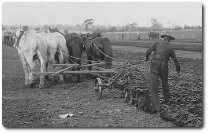Gerard Manley Hopkins, selected poems Contents
- As Kingfishers Catch Fire
- Binsey Poplars
- The Blessed Virgin Mary Compared to the Air We Breathe
- Carrion Comfort
- Duns Scotus' Oxford
- God's Grandeur
- Harry Ploughman
- Henry Purcell
- Hurrahing in Harvest
- Inversnaid
- I Wake and Feel the Fell of Dark
- Synopsis of I Wake and Feel the Fell of Dark
- Commentary on I Wake and Feel the Fell of Dark
- Language and tone in I Wake and Feel the Fell of Dark
- Structure and versification in I Wake and Feel the Fell of Dark
- Imagery and symbolism in I Wake and Feel the Fell of Dark
- Themes in I Wake and Feel the Fell of Dark
- The Leaden Echo and the Golden Echo
- Synopsis of The Leaden Echo and the Golden Echo
- Commentary on The Leaden Echo and the Golden Echo
- Language and tone in The Leaden Echo and the Golden Echo
- Structure and versification in The Leaden Echo and the Golden Echo
- Imagery and symbolism in The Leaden Echo and the Golden Echo
- Themes in The Leaden Echo and the Golden Echo
- The May Magnificat
- My Own Heart, Let Me Have More Pity On
- Synopsis of My Own Heart, Let Me Have More Pity On
- Commentary on My Own Heart, Let Me Have More Pity On
- Language and tone in My Own Heart, Let Me Have More Pity On
- Structure and versification in My Own Heart, Let Me Have More Pity On
- Imagery and symbolism in My Own Heart, Let Me Have More Pity On
- Themes in My Own Heart, Let Me Have More Pity On
- No Worst, There is None
- Patience, Hard Thing!
- Pied Beauty
- The Sea and the Skylark
- Spelt from Sibyl's Leaves
- Spring
- Spring and Fall
- St. Alphonsus Rodriguez
- The Starlight Night
- That Nature is a Heraclitean Fire and of the Comfort of the Resurrection
- Synopsis of That Nature is a Heraclitean Fire
- Commentary on That Nature is a Heraclitean Fire
- Language and tone in That Nature is a Heraclitean Fire
- Structure and versification in That Nature is a Heraclitean Fire
- Imagery and symbolism in That Nature is a Heraclitean Fire
- Themes in That Nature is a Heraclitean Fire
- Thou Art Indeed Just, Lord
- Tom's Garland
- To Seem the Stranger
- To What Serves Mortal Beauty
- The Windhover
- The Wreck of the Deutschland
- Beauty and its purpose
- The beauty, variety and uniqueness of nature
- Christ's beauty
- Conservation and renewal of nature
- God's sovereignty
- The grace of ordinary life
- Mary as a channel of grace
- Nature as God's book
- Night, the dark night of the soul
- Serving God
- Suffering and faith
- The temptation to despair
- The ugliness of modern life
- Understanding evil in a world God has made
Commentary on Harry Ploughman
The first four lines describe a man's body, especially his musculature. His arms are hard as a fence (‘hurdles') covered in golden down. He is lean, so that his ribcage shows clearly, and his waistline goes in  where it should. His thigh muscles look like ropes and his shanks or lower legs look like barrels. Hopkins seems to be imagining them, as presumably in real life, the man would be wearing breeches of some kind.
where it should. His thigh muscles look like ropes and his shanks or lower legs look like barrels. Hopkins seems to be imagining them, as presumably in real life, the man would be wearing breeches of some kind.
The second four lines refer to his co-ordinating his whole physique via his eye. He has to plough a straight furrow and his body is focused on that. Hopkins can see the muscles of Harry's limbs in motion as he controls the horses of his team. Some of the muscles look like mounds of earth (‘barrowy'), others look either ‘curded', small round knots like curds, or as hollows (‘sucked or sank').
The final three lines of the octave refer to the biblical image of the body, where each part knows its place:
So here, Harry's body is a unit, each part having its own rank and knowing what it must do.
In the sestet, we actually see him ploughing. As the plough goes ‘wallowing' over the field, so his muscles adjust to every variation of the ground to give a straight furrow. There is a natural grace to the man, flowing from his strength. The last few lines have a difficult word order, and use ellipsis. It is not entirely clear what ‘them' refers to in 1.17. Roughly it can be paraphrased as:
Look at his curly hair and how the wind forms it into a lacy pattern. Look how his grace, arising from his strength, throws (‘hurls') out the furrows (‘furls' ), with his feet bound in wrinkled (‘frowning') boots, as he races along with the iron (of the plough) under the earth, shooting up the shining earth like a fountain.'
- What do you think ‘quail' (1.13) means?
- What other words or phrases give the idea of control?
- What do we see of the man's face?
- Would you have expected more description of that?
- Does this picture seem very remote from you, in time and place, or does Hopkins succeed in making this man real for you?
- English Standard Version
- King James Version